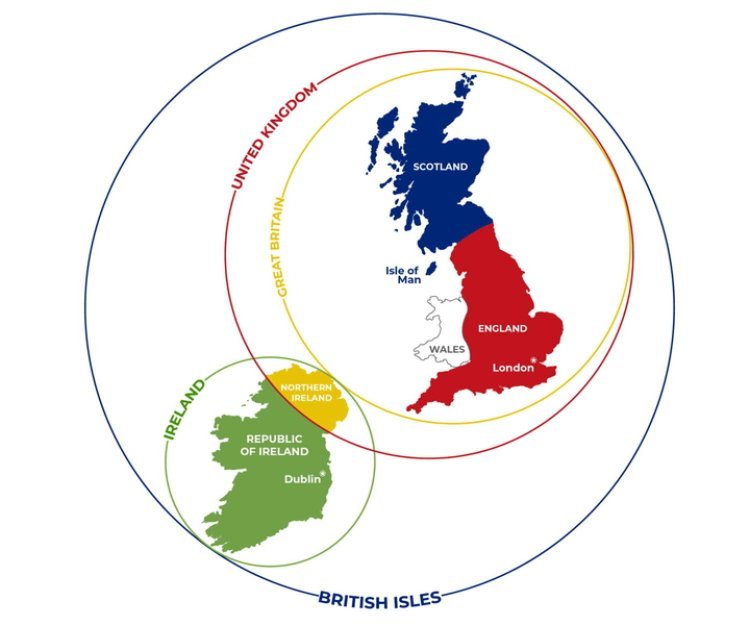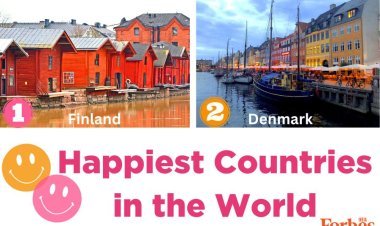Exploring the Distinction Between Great Britain and the United Kingdom._ISHEJA

Geographical and Historical Overview
The names Great Britain and United Kingdom are often used interchangeably.
However, they are not actually synonymous. The reason for the two names, and the difference between them, has to do with the expansive history of the British Isles.
The British Isles and their constituent islands
The British Isles refer to a group of islands located off the northwestern coast of Europe. The two largest islands within the British Isles are Britain and Ireland. It is important to note that there are smaller islands as well, including the Isle of Wight.
The historical context of Great Britain and the United Kingdom
In the Middle Ages, the name Britain was also applied to a small part of France known as Brittany.
As a result, the term Great Britain came into use to specifically refer to the island.
However, this name did not have any official significance until 1707.
During this time, the rival kingdoms of England and Scotland were united under the Act of Union, forming the Kingdom of Great Britain. This marked the official establishment of the geopolitical entity known as Great Britain.
Evolution of the terms Great Britain and United Kingdom
The history of the United Kingdom is closely intertwined with that of Ireland. By the 12th century, Ireland had effectively become an English colony. In 1801, Ireland formally joined Great Britain, forming the United Kingdom of Great Britain and Ireland.
However, this union was short-lived as Ireland seceded from the United Kingdom in 1922, with the exception of six counties in the north which remained part of the United Kingdom. The official name then changed to the United Kingdom of Great Britain and Northern Ireland, reflecting the new political reality.
Great Britain: Geographic and Political Significance
Great Britain holds both a geographic and political significance, encompassing England, Scotland, and Wales, along with the outlying islands that they administer.
Definition and geographical extent of Great Britain
Great Britain is a geographic term that refers to the island also known simply as Britain. It is comprised of three countries: England, Scotland, and Wales.
Additionally, Great Britain administers several outlying islands, such as the Isle of Wight.
Political entities within Great Britain
Within Great Britain, there are three distinct political entities: England, Scotland, and Wales. Each of these countries has its own distinct identity and political governance, while also being part of the overall framework of the United Kingdom.
Outlying islands administered by England, Scotland, and Wales
In addition to the mainland territories of England, Scotland, and Wales, these countries also administer several outlying islands. These islands, such as the Isle of Wight, have their own unique characteristics and contribute to the diverse geography of Great Britain.
The United Kingdom: Political Entity and Composition
The United Kingdom is a political term that encompasses all of Great Britain and the region now known as Northern Ireland. It is important to understand the political definition and historical background of the United Kingdom.
Political definition of the United Kingdom
The United Kingdom is an independent country that includes all of Great Britain and Northern Ireland. It is a sovereign state with its own government and governance structure. As a political entity, the United Kingdom holds significant global influence.
Inclusion of Great Britain and Northern Ireland
As previously mentioned, the United Kingdom includes both Great Britain and Northern Ireland. Great Britain is made up of England, Scotland, and Wales, whereas Northern Ireland is a distinct region with its own unique history and cultural background.
Historical background of the United Kingdom's formation
The formation of the United Kingdom can be traced back to the Act of Union in 1707, which united England and Scotland under a single monarchy. Subsequent events, such as the incorporation of Ireland in 1801 and the partition in 1922, further shaped the political landscape of the United Kingdom.
Key Differences and Common Misconceptions
There are often misconceptions regarding the terms Great Britain and the United Kingdom. It is essential to clarify the differences and debunk common misconceptions to gain a proper understanding.
Clarifying the difference between Great Britain and the United Kingdom
Great Britain refers to the island that includes England, Scotland, and Wales, along with their respective outlying islands.
On the other hand, the United Kingdom is a political entity that encompasses Great Britain and Northern Ireland. It is important to differentiate between the two terms to accurately describe the geographic and political realities.
Common misconceptions regarding the two terms
One common misconception is using the terms Great Britain and the United Kingdom interchangeably. This can lead to confusion and a lack of clarity in communication. Understanding the distinctions and using the terms appropriately helps in accurate discussions and descriptions.
Understanding the political versus geographical connotations
It is crucial to grasp the political versus geographical connotations of the terms. Great Britain primarily refers to the geographic entity, while the United Kingdom is a political and sovereign state. By recognizing and understanding these connotations, one can avoid misinterpretations and provide accurate information.
In conclusion, the terms Great Britain and the United Kingdom may appear synonymous, but they have distinct meanings. Great Britain refers to the geographic entity comprising England, Scotland, and Wales, while the United Kingdom is a political entity that includes Great Britain and Northern Ireland. Understanding these differences is essential in providing accurate information and promoting clear communication.












